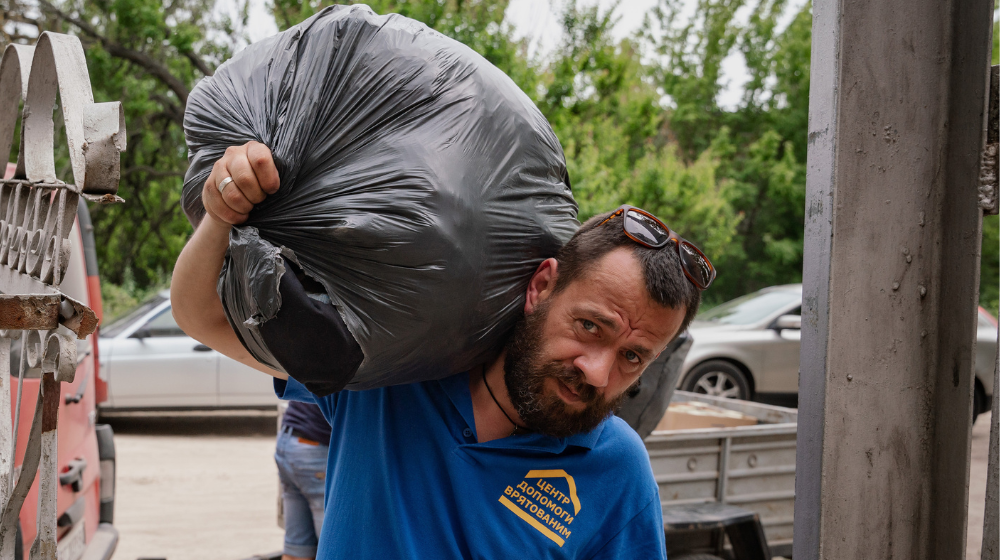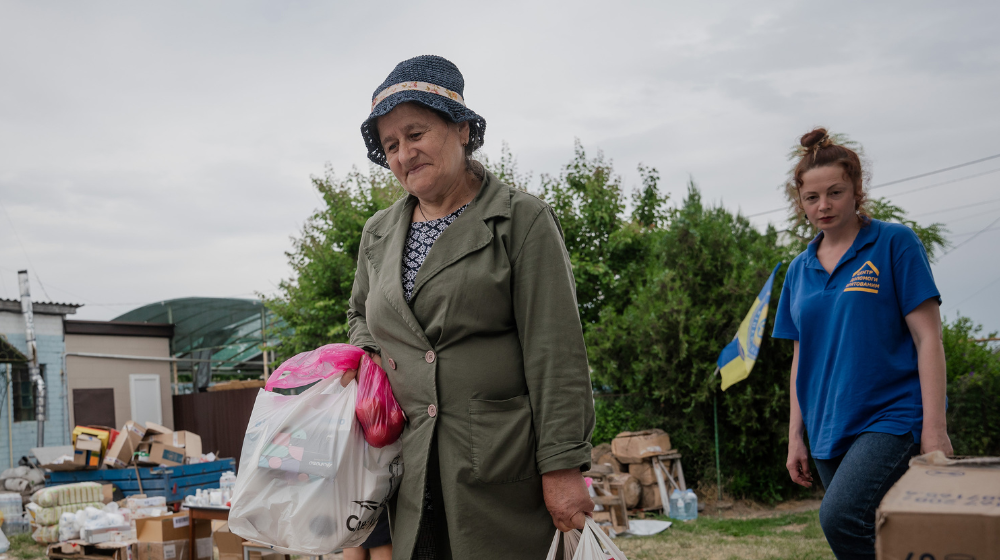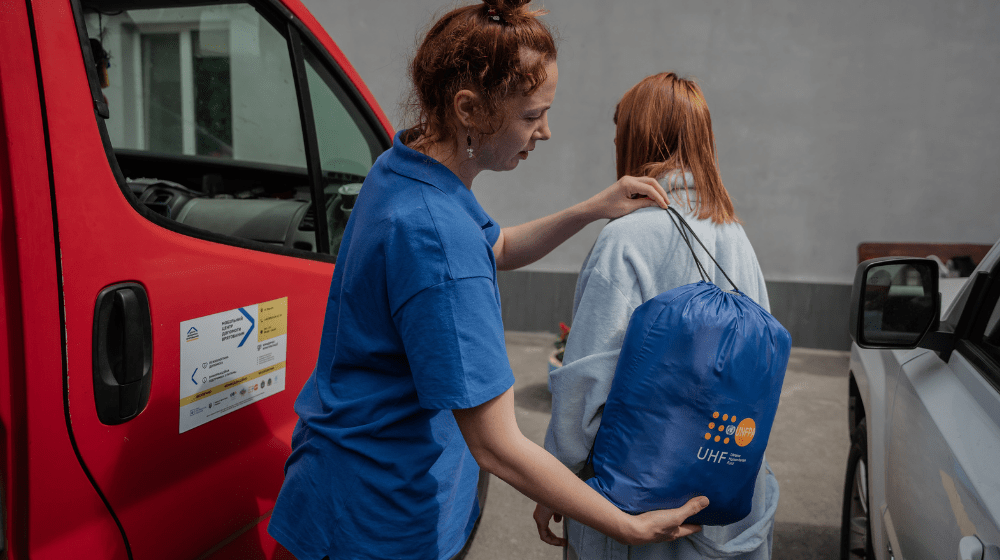In response to the catastrophe resulting from the destruction of the Kakhovka Dam on June 6th, the United Nations Population Fund (UNFPA) has deployed immediate, critical humanitarian assistance to the affected communities. The mitigation of the consequences of the massive flooding continues for the 20th day. While the water level continues to recede, some settlements and residential buildings still remain inundated.
UNFPA's response has been characterized by its speed and its focus on meeting the immediate needs of the most vulnerable groups, such as girls, women, and older people. Despite the havoc caused by the floodwaters, UNFPA remains on the ground and is expanding its presence, delivering essential support and aid to the affected populations.
The Survivor Relief Centre in Kherson has been actively engaged in providing humanitarian aid to survivors and supporting evacuation efforts. The staff at the center provides direct social, psychological, and even legal aid to individuals affected by the flooding. By offering this comprehensive support, the Survivor Relief Centre plays a vital role in assisting survivors in rebuilding their lives and regaining some level of stability.

The 'VILNA' women-friendly space in Kherson has remained operational from the very beginning, providing vital support to those affected. While the facility itself has been severely impacted, the staff have been temporarily relocated and continue to assist evacuees both online and offline. The provision of psychological support remains a top priority, with group sessions for women and families, as well as individual sessions tailored to meet the specific needs of women in distress. Moreover, the staff of the 'VILNA' space conducts regular visits to hospitals, shelters, and schools, ensuring that they stay connected with the affected communities and remain responsive to their evolving psychosocial support requirements.
Throughout the crisis, UNFPA's psychosocial mobile teams in Mykolaiv and Odesa have remained active, serving as a vital lifeline for those impacted by the floods. These teams have played a crucial role in delivering consistent and much-needed psychological support to individuals affected by the disaster. Additionally, they have been instrumental in facilitating access to essential medical and legal services for evacuees. By providing this comprehensive assistance, the psychosocial mobile teams are aiding individuals in coping with the psychological consequences of the floods and guiding them through the necessary steps to receive crucial medical and legal aid.
Our team continues to distribute dignity kits, which include essential hygiene items for women and girls, as part of its ongoing efforts in the flood-affected areas. This initiative is crucial in ensuring the well-being and dignity of those impacted by the floods, with a particular focus on addressing the immediate needs of women, girls, and older women during this challenging period.

UNFPA is grateful to the donors, whose contributions make these vital humanitarian interventions possible: the USAID's Bureau for Humanitarian Assistance (BHA), Sweden, Australia, Norway, the United Kingdom, France, Korea, Denmark, Spain, Finland, Belgium, the EU (DG-ECHO, DG-NEAR), CERF, Netherlands, Ireland, OCHA-Ukraine Humanitarian Fund, Japan, Canada, Iceland, Estonia, Czech Republic, the UN Partnership to Promote the Rights of Persons with Disabilities (UNPRPD) and Portugal, as well as to private sector companies and individual donors.
UNFPA has been working in close collaboration with other United Nations agencies, such as OCHA, UNHCR, WFP, UNICEF, and IOM, to ensure a coordinated and comprehensive response to the crisis from the very onset. This collaborative effort aims to swiftly and effectively deliver assistance to the evacuees, leaving no one behind.


